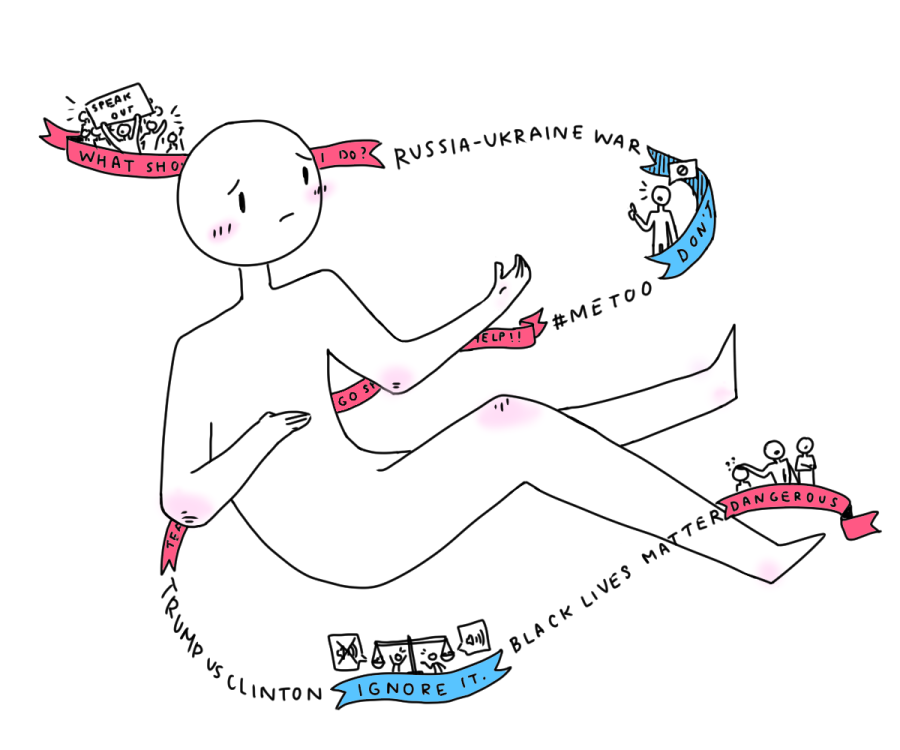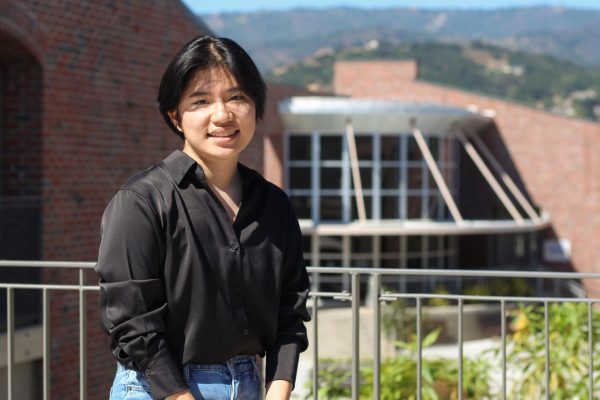Stay silent, speak out
Reconciling involvement with politics and cultural norms
Learning how to reconcile the culture I was raised in with the political activism of my community has been extremely difficult.
March 10, 2022
During the 2016 presidential election, my teacher had us do a mock election in class. All 26 of us clustered on a fuzzy lint-covered carpet in front of the whiteboard as our teacher wrote the words “TRUMP VS. CLINTON” in big letters on the board, then handed out little strips of paper for our votes. Now, let’s be honest here — we were fifth graders whose biggest worry was whether our Oxigel pencil grip was blue or pink or whether we’d have to endure another greasy bread-cheese concoction for lunch — in other words, all of us knew diddly squat about politics.
Half the class voted for Trump because they thought he was a meme and the other half voted for Clinton because they’d heard older siblings discuss how she was “lit” and “cool.” I remember voting for Trump simply because I thought it’d be funny; none of us had any idea of the ramifications of voting in the real world. When I went home and told my parents about it, expecting a chuckle or a pat on the head, they sat me down and told me seriously that I should never, ever talk about politics with my friends or teachers, whether they were my own thoughts or what my parents discussed at home.
When I asked why, all they did was ruffle my hair and say, “it’s dangerous to do so — always keep your opinion to yourself.”
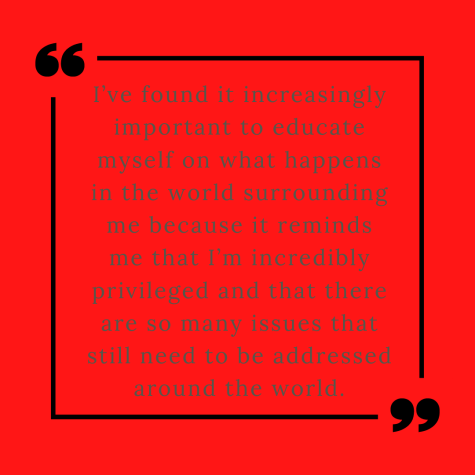
My parents never exposed me to the news or talked about politics, so I grew up unknowing and uncaring of what happened in the world outside of the bubble I lived in. It wasn’t until I got to high school and became more involved with social media and journalism that I was thrown into a world where it was normal, even expected, to have a political opinion.
Now that I’m old enough to research said political situations and no longer have the awareness of a limp noodle, I’ve started to learn about issues that previously I never even realized existed. Especially in the past couple years, with the BLM movement, the #MeToo reckoning and now the Russia-Ukraine War, I’ve found it increasingly important to educate myself on what happens in the world surrounding me because it reminds me that I’m incredibly privileged and that there are so many issues that still need to be addressed around the world.
Yet, throughout it all, my parents have constantly reminded me to keep my opinions to myself. When I voiced my thoughts on BLM protests, my parents would tell me to turn a blind eye. When I brought up #MeToo, my parents told me not to engage in conversation. When I mentioned the Russia-Ukraine war, my parents didn’t comment, but only because they assumed I was old enough to realize I shouldn’t go around blabbing my opinions to the people around me.
It’s not that my parents don’t care about what’s happening, but rather they come from a culture where they learned to keep their heads down and try to blend in. This contrasts heavily with the ideals of those who live in our community here in the Bay Area, where people educate others on important issues, share posts on social media and avidly participate in protests, where it’s believed that by not correcting, teaching and sharing, we become part of the problem.
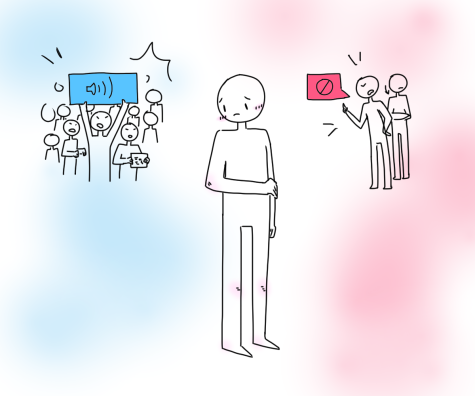
The dichotomy of the two has been a constant struggle in my life — should I share the post I see on social media and disrespect my parents’ wishes or should I keep my head down like I was taught and not help contribute to a solution when I am in the perfect position to do so?
And perhaps this choice should be a straightforward one, where I should always do the right thing despite what others, including my parents, may think. But the truth is, the decision isn’t so easy. Regardless of whether my parents are right or wrong, when I’ve been told my entire life that to share my opinions would be to invite criticism and scrutiny, it’s hard to imagine disobeying them. There’s also the thought of who am I to disrespect their opinions and decisions when they’ve already given up so much to give me everything?
On the other hand, I realize that I’m privileged to even have the choice to decide whether or not I want to insert myself into a situation. It’s because I’m not the one huddled in a bomb shelter that I can have apathy or distance myself from the Russia-Ukraine War, when Ukranians have no choice in the matter – but if I were the one being affected, it’d mean the world if someone stood up for me, so why shouldn’t I do so for someone else?
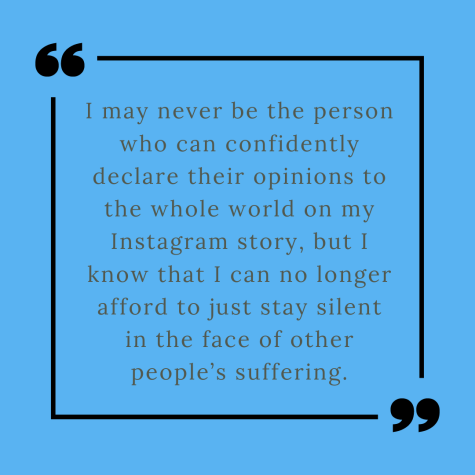 I haven’t had that epiphany moment when I realize what side I should take, whether I should speak out or remain quiet. I’m just as stuck and unsure of what to do as when I first realized the world wasn’t as perfect as I thought it was. But this is a start – to write what I’m writing right now is already breaking my parent’s “no-politics” rule. I may never be the person who can confidently declare their opinions to the whole world on my Instagram story, but I know that I can no longer afford to just stay silent in the face of other people’s suffering.
I haven’t had that epiphany moment when I realize what side I should take, whether I should speak out or remain quiet. I’m just as stuck and unsure of what to do as when I first realized the world wasn’t as perfect as I thought it was. But this is a start – to write what I’m writing right now is already breaking my parent’s “no-politics” rule. I may never be the person who can confidently declare their opinions to the whole world on my Instagram story, but I know that I can no longer afford to just stay silent in the face of other people’s suffering.
So for now, I’m learning and I’m growing — and maybe someday I can finally learn to reconcile what my parents and my generation have taught me.


